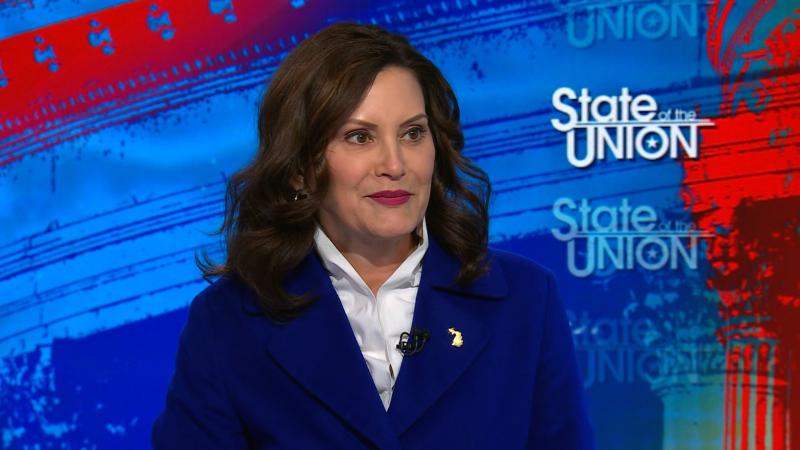Texas colleges claim to drop 'diversity, equity, inclusion' policies after Abbott directive
DEI “has been manipulated to push policies that expressly favor some demographic groups to the detriment of others,” governor’s office says.
Texas Gov. Greg Abbott’s chief of staff sent a letter to all heads of state agencies and state-funded university systems last month telling them to follow existing law and drop their DEI policies (diversity, equity and inclusion), arguing they are illegal.
Within a few weeks, the state’s largest university systems said they were halting their DEI policies after they’d spent years and millions of dollars implementing them.
Abbott’s Chief of Staff Gardner Pate wrote, “federal and state law forbid discrimination against a current or prospective employee because of that person’s race, color, religion, sex, national origin, age, disability, or military service,” which covers hundreds of thousands of people employed by the state of Texas.
He said DEI “has been manipulated to push policies that expressly favor some demographic groups to the detriment of others. … Rather than increasing diversity in the workplace, these DEI initiatives are having the opposite effect and are being advanced in ways that proactively encourage discrimination in the workplace. Illegally adding DEI requirements as a screening tool in hiring practices or using DEI as a condition of employment leads to the exclusion and alienation of individuals from the workplace.”
Agencies and state-funded universities using taxpayer dollars to fund DEI initiatives, Pate said, was “inconsistent with the law.”
Not soon after, Texas A&M University System Chancellor John Sharp issued a statement, saying, “No university or agency in the A&M System will admit any student, nor hire any employee based on any factor other than merit.” He also “directed leaders of its 11 universities and eight agencies to stop asking job candidates for statements about their commitment to diversity, equity and inclusion in their applications, The Eagle reported.
Texas A&M had established faculty-hiring lines reserved solely for “underrepresented,” “racial minorities,” according to university emails made public in a lawsuit filed by America First Legal. The lawsuit alleges A&M’s ACES program violates Title VI and Title IX of the Civil Rights Act.
Weeks after Sharp’s claim, as of March 23, A&M’s Office for Diversity website was still promoting its Accountability, Climate, Equity and Scholarship (ACES) Faculty Fellows Program created to hire tenure-track professors reportedly using DEI policies, over which the lawsuit was filed. The office is also actively promoting “enhancing diversity seminars” and other initiatives that critics argue are race-based.
The University of Texas System Board of Regents Chairman Kevin Eltife said last month at its quarterly meeting, “Given the clear legislative focus, we have paused any new DEI policies on our campuses and have asked for reports on current policies on our campuses” for the board to review.
Eltife also said, “I also think it’s fair to say that in recent times, certain DEI efforts have strayed from the original intent to now imposing requirements and actions that, rightfully so, has raised the concerns of our policymakers about those efforts on campuses across our entire state,” the Austin American Statesman reported.
One month before Pate’s letter was sent, Texas Tech University’s Department of Biological Science published a motion to prioritize DEI for its tenured and tenure‐track faculty, recognizing that it “has no Black or Indigenous faculty” and it planned to hire new faculty using DEI standards.
One day after Pate’s letter was issued, Texas Tech published a statement saying, “Recently, we learned of a department that required a diversity, equity, and inclusion statement in addition to the usual applicant materials as part of a faculty search. We immediately withdrew this practice and initiated a review of hiring procedures across all colleges and departments. We will withdraw the use of these statements and evaluation rubrics if identified.”
The University of Houston Downtown has also prioritized DEI. Its Provost emphasizes DEI policies as part of a faculty checklist and DEI was the primary focus of a recent faculty retreat emphasizing UHD’s “yearlong series of conversations and action around … DEI with the goals of creating a more equitable and inclusive environment for faculty, staff and students.”
At the retreat, faculty were taught how to “recognize, give voice to, and address the criticisms of the DEI efforts of our campus in the spirit of inclusion and critical dialogue,” to “depoliticize DEI,” and to establish a “long-standing challenge to continue momentum in DEI efforts to dismantle systemic marginalization and ensure all students, faculty and staff are included and supported maximally in all UHD academic, workplace, and social settings.”
Roughly one month after Abbott’s directive, University of Houston System Chancellor Renu Khator issued a directive published by Fox 26 Houston News. It states in part, "We will continue to ensure our policies are consistent with state and federal laws, and we stand against any actions or activities which promote discrimination in the guise of … DEI. … In order to ensure compliance with state and federal law, we will not support or use DEI statements or factors in hiring or promotion anywhere in the University of Houston System.”
However, as of March 23, the Office of the Provost’s website “challenged academic departments to document and identify more meaningful and sustained efforts towards DEI outcomes.”















